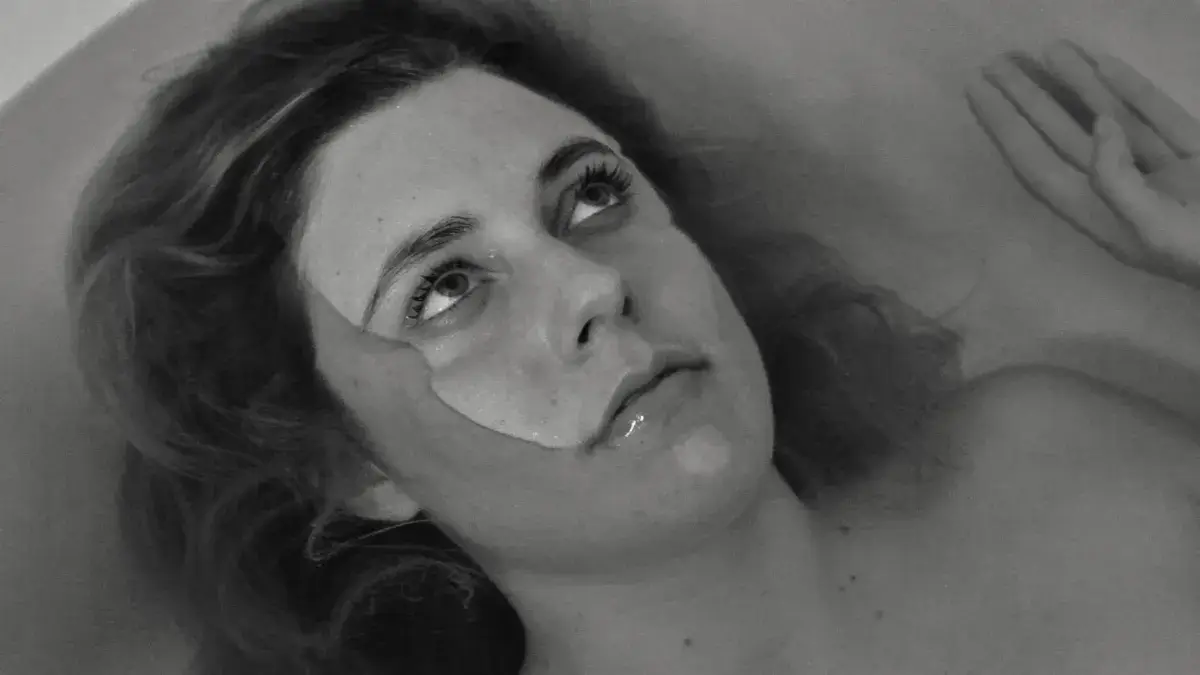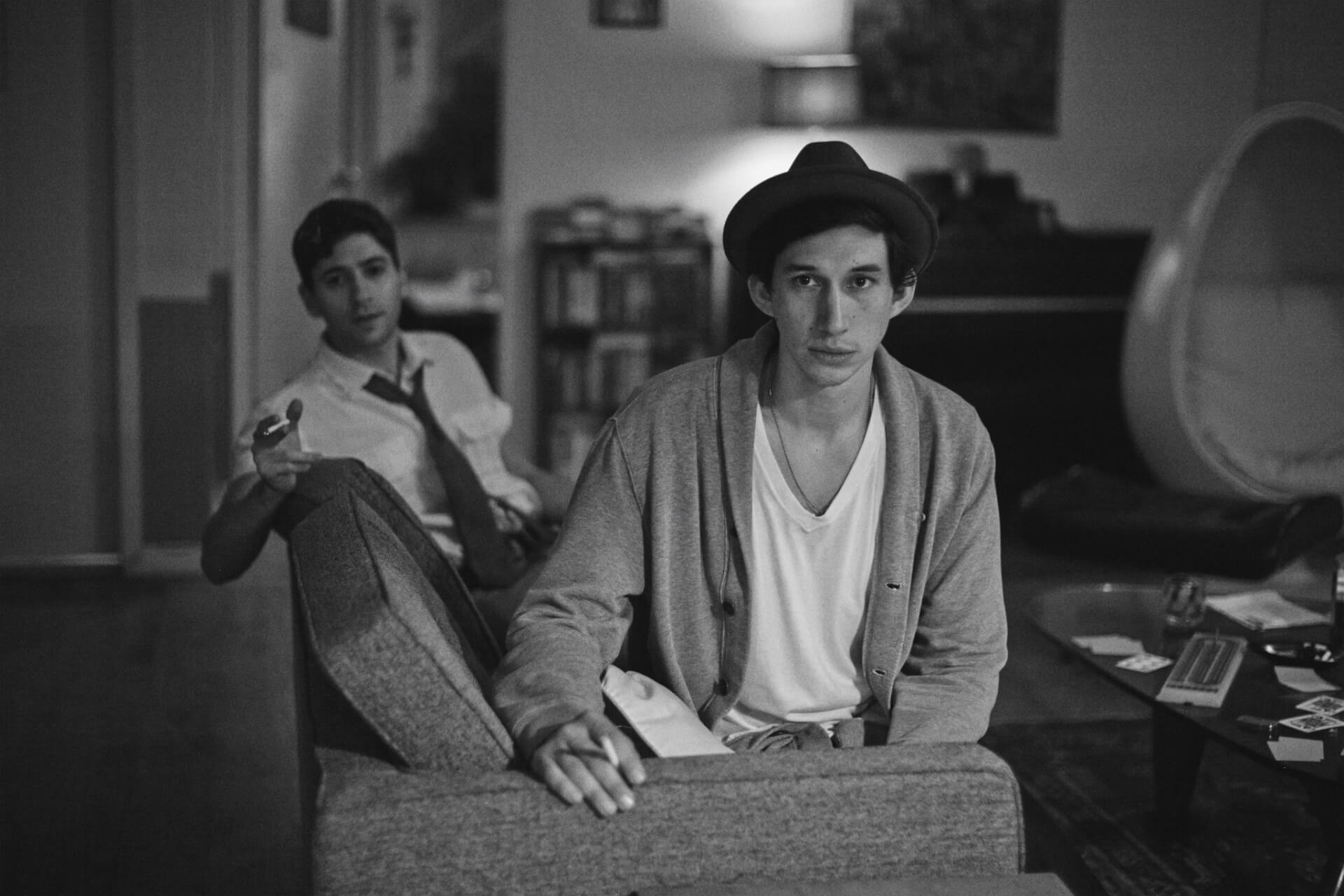FRANCES HA. Phenomenal Greta Gerwig in a film that provides pleasure

Frances loves life. People, for the most part, too. Perhaps except for Lisa, whom she calls a “bitch,” but apparently, she has reasons for that. Sophie, her best friend, is the main character’s roommate in Brooklyn. They speak the same language, know each other inside out, and even though they have boyfriends, they like to think of themselves as a lesbian couple who stopped having sex. Frances dances but isn’t good enough to join a dance company, and she doesn’t think about creating choreography and routines, even though she’s capable of it. Money slips through her fingers, relationships end quickly, but she doesn’t seem to care much about either. She lives day by day, carefree about the future, confident that her friend Sophie will never leave her. Until the moment when Sophie announces that she is moving out.
Noah Baumbach’s new film stands out from his previous works not only because it was entirely shot in black and white. While his previous films were tragicomedies with a tone often leaning towards drama, “Frances Ha” has a lightness and cheerfulness unlike “Margot at the Wedding” or “Greenberg.” Instead of a funny psychodrama, we get an enjoyable portrait of a 27-year-old incorrigible optimist who may not have a plan for herself, but it doesn’t bother her at all. However, as is typical of Baumbach, the most interesting moments are not the ones filled with humor and carefreeness but the observation of the world in which Frances finds herself. What is it like to try to convince everyone that everything is okay when nothing is going your way? The optimism of the main character is sincere and endearing, but she constantly encounters moments of disappointment and disillusionment, and surprisingly, there are quite a lot of them in Baumbach’s film. Just mention Frances’s two-day trip to Paris, where she oversleeps the first day and unsuccessfully tries to reach her friends living there on the second day. They return her call just after she gets back to New York.

The film has a loose structure, and, similar to the main character, it’s hard to say where it is heading. Frances’s goal is to maintain the status quo in her life, but when Sophie moves out, everything changes. First, she has to find a new place for herself, and she meets two somewhat arrogant guys (a bit younger than her) with wealthy dads, with whom she gets along well. However, after a while, she realizes that she can’t afford such an expensive apartment. At the same time, her plans to become a dancer are abandoned, and, as if that’s not enough, her subsequent meetings with Sophie distance them even further. Yet, all of this only momentarily overwhelms Frances, whose new attempts to organize her life, though sometimes misguided (at one point, she decides to go back to college, but in a completely different role than one might expect), don’t take away her positive outlook on the world.
And what is Frances like in the eyes of others? Baumbach tells the whole story from her perspective, but he occasionally captures the bewilderment in the eyes of others when, for example, the titular character explains that she’s doing nothing. Another time, someone says that she has an “old face” but behaves immaturely. At 27, it is generally expected to know who you are and what your life will look like, but Frances is not particularly interested in her future. In fact, she is not interested in herself! She lives in a world where she can rely on her best friend, and dreams of professional dancing obscure her actual situation. When all of this disappears, Baumbach’s protagonist can finally focus on herself and make a change, though she doesn’t realize it immediately.

Greta Gerwig embodies the titular character, and as Frances, she is phenomenal. She doesn’t try to please the audience, never being so joyful that we can’t believe in her optimism, nor so sad that we pity her. Baumbach’s style and direction give the whole film shape and a taste of the French New Wave, but it’s Gerwig who determines the quality of the entire endeavor. She carries the entire film on her shoulders, but in two scenes, she tells us everything important about her character. In the first one, Frances runs down the street, almost dancing, with David Bowie’s “Modern Love” playing in the background; shot in a single take, no other scene expresses the affirmation of life in such a lively way. The second scene takes place right after dinner among newly met people, where the main character explains what love means to her and at what moment she will feel it most fully. Gerwig seems completely defenseless at that moment, but so do the other guests and viewers, whose reaction to Frances’s confession can only be an immediate love for her.
Don’t expect loud laughter from Baumbach’s comedy, as there are not many jokes, and when they do occur, the reaction may not necessarily be loud laughter. “Frances Ha” provides the pleasure of being with the titular character, whose unwavering optimism also affects the viewer. The use of black and white film adds charm, creating an impression of a movie not from this era but one that fits well with the whole story. And why the “Ha” in the title? Well, Frances sees her joyous nature even in her last name.

Krzysztof Walecki

